The 10 Biggest Apple Stories Of 2012

The Other Big Apple
As its first year without late founder and tech icon Steve Jobs at the helm, 2012 was a big one for Apple. CEO Tim Cook (pictured) had to prove to the world that he could maintain the incredible momentum Apple had gained in the mobile market, a feat he accomplished with a number of new product launches, an executive shake-up and even a humbling public apology.
Here are the year's 10 biggest Apple stories.

10. Apple Becomes World's Most Valuable Company
Apple scored a big win in its on-going rivalry with Microsoft this August, when it surpassed the software giant to become the most valuable public company in history. The victory came after Apple's market capitalization grew to a record $623 billion -- just enough to steal the crown from Microsoft, which had held the title for 12 years after reaching a market cap of $620 billion in December 1999.
The surge in Apple's stock -- which was largely attributed to the upcoming launch of the iPhone 5 -- also solidified its lead over the world's second most valuable company, Exxon Mobil, by a whopping $200 billion.
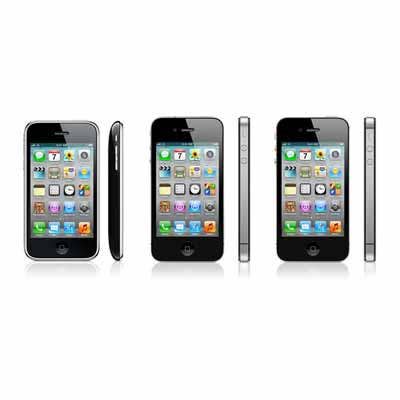
9. The Foxconn Fiasco
Apple's partnership with Foxconn, the Chinese manufacturing company that produces its iPhones, was thrust into the spotlight this year, dragging Apple's labor practices along with it.
The trouble started after a New York Times report exposed a number of gross labor violations at Foxconn, ranging from underage workers to employee suicides to exposure to toxic chemicals. Apple CEO Tim Cook, as a result, visited China in March to personally speak with Foxconn employees about their working conditions. He also launched a series of audits with the Fair Labor Association to look into the claims.
Still, Apple's troubles with Foxconn persisted; in September, a nearly 2,000-employee riot broke out at Foxconn's Taiyuan plant, after a guard allegedly beat some workers
Another riot reportedly broke out in October, after employees started protesting new and "overly strict" quality assurance processes related to the iPhone 5.

8. The Mac Comes Home
Not necessarily in response to the Foxconn debacle, but still buzz-worthy, was Tim Cook's decision in December to move some of Apple's production lines for its Mac computers from China to the U.S. starting in 2013.
The shift marks a major one for Apple, which for more than a decade has hosted the bulk of its manufacturing in China. In an interview with Bloomberg, Cook said the transition will run Apple more than $100 million. He also said the U.S. jobs would be more extensive than just final Mac assembly, but didn't specify where the manufacturing sites would be located, or which particular Mac line-up they would host.
"I don't think we have a responsibility to create a certain kind of job," Cook said in the interview. "But I think we do have a responsibility to create jobs."
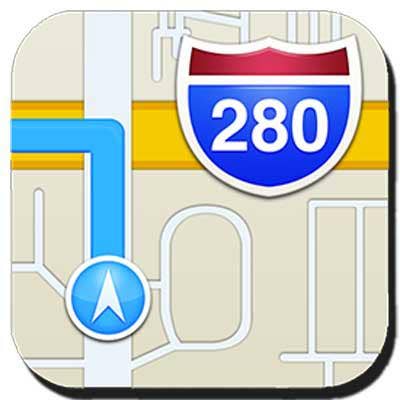
7. The Maps App Flop
In its efforts to strip itself of everything Google, Apple in September launched its own homegrown Maps app to replace Google Maps in iOS 6.
But instead of becoming an overnight success like most new Apple products, something strange happened: users didn't like it. Reviewers found the app to be buggy and inaccurate. Major city landmarks were mislabeled and directions were often faulty.
After such a poor showing, Apple found itself in a rare and humbling moment; CEO Tim Cook publicly apologized for the app's shortcomings and vowed to fix it over the following months.

6. Scott Forstall's Departure
In its biggest executive shake-up since CEO Tim Cook took to the helm last year, Apple announced in October that Scott Forstall, head of iOS software, was leaving the company
Forstall, who had been with Apple since 1997 and was largely considered a contender for the CEO role after Jobs, was reportedly asked to leave the company after refusing to apologize for the faulty new Maps app he helped develop for iOS 6. It was also believed that Forstall had a long history of butting heads with Apple senior execs, and the Maps app debacle was just the final straw.
Forstall was said to be a close confidant of Jobs' during his years at Apple. He will continue to serve as an advisor to Cook until officially stepping down next year.
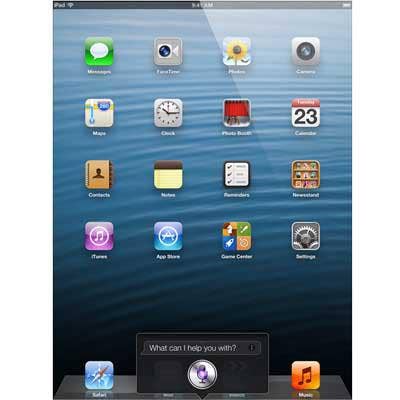
5. The 'New iPad' Shakes Up Tablet Market
Apple in March sparked yet another feeding frenzy at its worldwide retail locations when it launched its third-generation iPad.
Dubbed, quite simply, "the new iPad," Apple's new tablet was the first in its line-up to support 4G networks and feature the new 2,048-by-1,539 Retina display. Sales of the new iPad took off instantly, with Apple selling 3 million units of the tablet in just three days. In August, these sales propelled Apple to the top of the tablet market, where it captured a massive 70 percent share.
Apple has since unveiled a fourth-generation iPad, but its debut was somewhat muted by a number of other new products that launched alongside it.

4. Bob Mansfield's Retirement
Like Scott Forstall's sudden departure, the retirement of Bob Mansfield was one of Apple's biggest executive shake-ups this year.
Mansfield, Apple's senior vice president of hardware engineering and one of the driving forces behind the Mac, iPhone and iPad product lines, was said in June to be transitioning to retirement. He had been with Apple since 1999 and served as the chief Mac engineer since 2005.
Mansfield also had a heavy hand in Apple's mobile products, spearheading both iPhone and iPad engineering. His responsibilities were handed over to Dan Riccio, vice president of iPad hardware engineering, during the several months he transitioned to retirement.
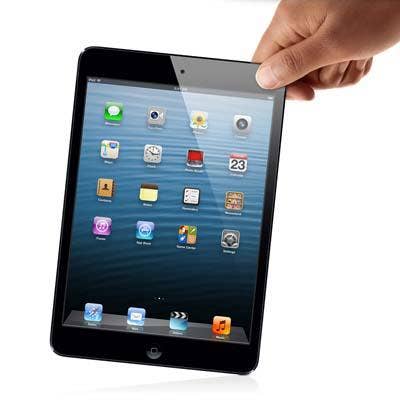
3. The iPad Goes 'Mini'
Two years ago, Steve Jobs famously said Apple would never produce a 7-inch tablet. The screen size, he argued, would be too small to fully capture the rich iOS experience.
But this year, Apple went ahead and made a smaller-sized tablet anyway, and, while its late CEO was hesitant to make the move himself, he would likely be pleased with the outcome.
The iPad mini, Apple's first 7-inch tablet, launched in October, took direct aim at Google's Nexus 7 and Amazon's 7-inch Kindle Fire HD. Despite its smaller package, the iPad mini packs a punch; it runs Apple's dual-core A5 processor, gets 10 hours of battery life and has a 1,024-by-768 HD display. Apple sold 3 million iPad minis within the first three days it was available.
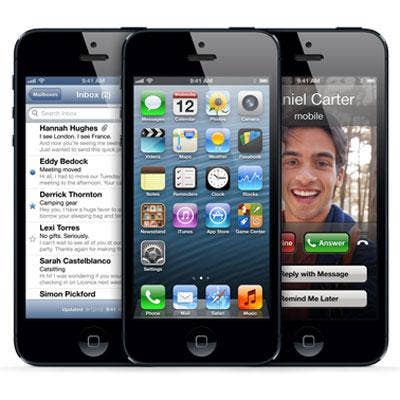
2. The iPhone's Makeover
The iPad wasn't the only Apple product to be re-sized this year. The iPhone got a bit of a makeover, as well.
Apple in September launched the iPhone 5, a thinner, longer and faster version of its wildly popular smartphone. In addition to running iOS 6, the fifth-generation iPhone also runs Apple's new A6 processor, which the company says offers twice the CPU and graphics performance of its A5 chip used in the iPhone 4S.
Like most Apple product launches, the arrival of the iPhone 5 created a frenzy among consumers. Apple fans lined up for days to get their hands on the new phone, and over 5 million were sold during the first weekend they hit shelves.

1. Apple Wins Its Patent War With Samsung
Apple pulled a major victory against arch rival Samsung this August, after a California jury found Samsung guilty of copying Apple's patents for the iPhone and iPad when building its own Android-based smartphones and tablets.
The verdict, which demanded Samsung pay Apple a hefty $1.05 billion in damages, represented a major legal win for the Cupertino giant and one that underscored just how significant an influence it had on the global smartphone and tablet markets.
Apple's victory was no doubt one for the books, but its legal spat with Samsung is far from over; the two are slated to return to court in 2014 to argue a new set of patent infringement claims, with Apple, meanwhile, actively pursuing a U.S. sales ban on several Samsung devices.